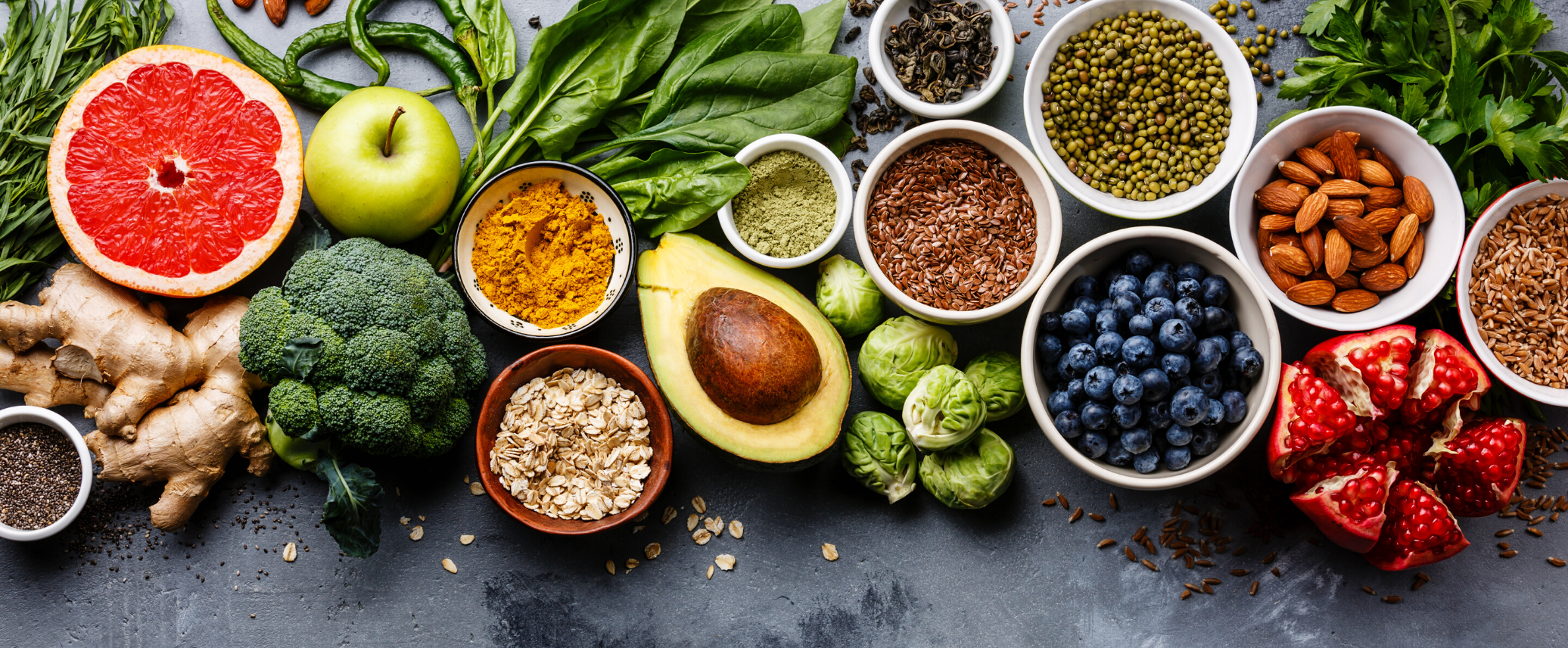A review published in 2008 looked at different studies investigating the effects of nutrients on brain function. They found that “influences of dietary factors on neuronal function and synaptic plasticity have revealed some of the vital mechanisms that are responsible for the action of diet on brain health and mental function.”[1] Additionally, they looked at evidence from research on the power of certain foods and diets to protect the brain and body against diseases.
A number of studies have found that certain nutrients and foods affect cognition and emotion. For example, a diet abundant in omega-3 fatty acids has been shown to reduce cognitive decline in the elderly and is used to treat patients with mood disorders. Animal studies have shown an improvement in traumatic brain injury and reduced cognitive decay in Alzheimer’s disease. Foods like, fish (salmon), flax seed, krill, chia, kiwi fruit, butternut squash and walnuts are good sources of omega-3 fatty acids.
The review concluded that there are still a lot of questions to be answered about the level of different nutrients required for brain health, and how they are influenced by calories, exercise, sleep and lifestyle. However, diet remains an important aspect of public health. To maintain good health and to look after your brain, including different nutrients from whole food sources in your everyday diet may be important both for prevention and treatment of neurological disorders.
The review identified certain nutrients that may affect cognition. The brain is vulnerable to oxidative damage and many of these nutrients are antioxidants. Check out some of them below!
Curcumin – Curcumin has been shown to reduce cognitive decay in animal models of Alzheimer’s disease and traumatic brain injury. The main source of curcumin is Turmeric (curry spice) and it is a powerful antioxidant. Dr Ailsa McGregor from the University of Otago has done extensive research into Turmeric and the benefits of it for Stroke patients. Read more here: Curcumin and Stroke
B Vitamins – B vitamins have been shown to have positive effects on memory performance. They are found in various foods and are also common as supplements. Folate is an important B vitamin that the New Zealand government is looking at supplementing in our food.[2]
C, D, E Vitamins – All of these vitamins have shown promising results for preserving cognition in the elderly,. Vitamin C is one of the easiest to obtain from food, as it is present in high amounts in citrus fruits, plants and vegetables. Vitamin D is often given as a supplement and is also found in fish liver, fatty fish, mushrooms, milk, soy milk and cereal grains. Vitamin E is found in asparagus, avocado, nuts, olives, seeds, spinach and vegetable oils. Vitamins C and E are good antioxidants.
Flavonoids - The natural plant pigments that give berries their brilliant hues, are also found in cocoa, green tea, citrus fruits, wine and dark chocolate. Research shows that flavonoids may improve memory and cognitive function.
Choline – This nutrient is essential for many processes in the body, including making the neurotransmitter acetylcholine. Research indicates that there is a relationship between dietary choline and cognition. Common food sources are egg yolks, soy beef, chicken, veal, turkey, liver and lettuce.
[1] https://www.ncbi.nlm.nih.gov/pmc/articles/PMC2805706/
[2] https://www.health.govt.nz/our-work/preventative-health-wellness/nutrition/folate-folic-acid






